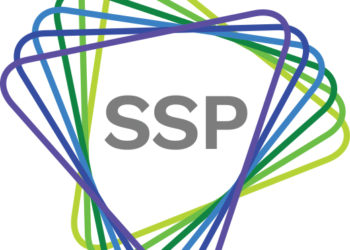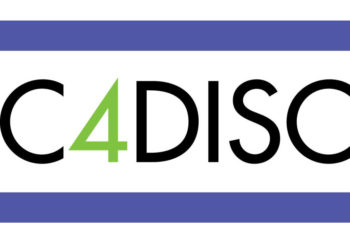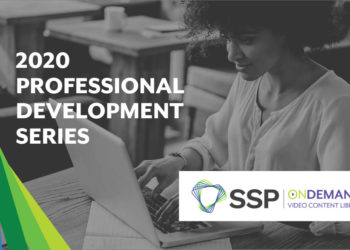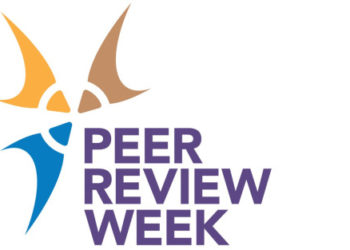This week, the Society for Scholarly Publishing (SSP) will convene the New Directions virtual seminar, and select Scholarly Kitchen Chefs will open things up with a lively discussion about this year’s monumental challenges and changes to the scholarly communications and publishing industry. The seminar will focus on “new ways in which publishers and industry leaders can continue to support academic peer-reviewed research and the entire academic publishing ecosystem,” during this unprecedented year of disruptions, disease, and disappointments.
This introductory session features Chefs Haseeb Irfanullah, Judy Luther, Alice Meadows, and Charlie Rapple in conversation, moderated by Chef Lettie Conrad. The conversation was pre-recorded and will kick off the seminar starting on September 30th (you can still register here). We enjoyed our discussion so much, we wanted to highlight some of the insights and perspectives illuminated by this panel of research and publishing professionals.
How is the research ecosystem responding to this year’s challenges? How are researchers functioning in a new normal?
Charlie Rapple: It’s worth noting that we don’t yet know what the “new normal” is—it continues to evolve as the pandemic, and related lockdown measures, ebb and flow. Researchers have had to assimilate a wide range of additional tasks, from those relating to undergraduate admissions or online teaching, to redesigning research methods, or accelerating review and publication of COVID-related content.
Much of what is currently the “new normal” will not be sustainable in the longer term, as it’s relying on extraordinary efforts from individuals. But there are some encouraging signs that we won’t just return to the previous status quo; for example, the sort of institutionalized resistance to adopting new technologies for communicating research has made great leaps forward, as people have had to adopt new technologies — and have done so more easily and with more competence than they expected. At Kudos, to support these changes, we launched a new platform for communicating research and collaborating remotely, and 10,000 people have signed on during the pandemic — I don’t think we’d have seen that pace of uptake without this unexpected external pressure disrupting the status quo and forcing people to be more innovative.
Haseeb Irfanullah: While talking with my Bangladeshi academic friends to understand how researchers are doing in the COVID-19 pandemic, I got a mixed response. As universities are closed, we could go back to old data sets to analyze, finalize that old manuscript, or even publish a few papers. But, like everybody else, researchers also have suffered from anxiety due to the pandemic, as it is something we’ve never experienced before. Not all researchers are benefiting from a quarantined lifestyle.
We in academia were also kind of confused. In Bangladesh, for example, we debated a lot whether we should move to online teaching at the universities given the internet facilities or online teaching skills we have. In contrast, we had no conversation at all about research — an integral part of tertiary education. As in the rest of the world, research about COVID-19 has increased in Global South countries, like Bangladesh. But, not talking about research as a whole revealed the overall limited attention to research in the Global South. Data also shows that many of these countries invest very little in research and development, compared with their GDPs. Like our many weaknesses, I am afraid, the coronavirus pandemic also unveiled inadequate interest of the South in research.
Judy Luther: Initially, the abruptness of the change required that everyone adapt overnight with no time to prepare. The summer enabled those teaching to assess what worked and to make adjustments for the fall term. The challenge has been to prepare for both in person and online classes and then alternate between them depending on what was happening on campus. Societies have sought to support their members with guidelines, advice, and informal coffee hours, where faculty can share their experiences. One of the changes was to rethink assignments that engaged students in an activity they could do at home or assign them to groups that were interactive to counter the isolation many students were experiencing.
Many researchers accustomed to presenting their results at meetings were confronted with the need to adapt the length of their presentation, possibly pre-record it, and then participate in an online discussion the day of the meeting. Some were asked to create a poster and record a five minute video which could be viewed in advance while the session was a panel discussion about their research. Societies are experimenting with different models as they seek to create online forums to support researchers in fulfilling expectations that are critical to their career path.
Alice Meadows: My organization, NISO, and other research infrastructure organizations are focused primarily on serving the organizations that support researchers, rather than supporting the researchers themselves. We provide the building blocks for tools and services such as manuscript submission systems, content platforms, repositories and so on — things like persistent identifiers (PIDs), standards and best practices, schema, etc. So, our main concern during these disruptions has been to ensure that libraries, publishers, vendors, and others continue to have access to these building blocks and are able to adapt their services and tools to meet researchers’ changing needs.
SeamlessAccess — a way of accessing content using your institutional credentials rather than IP recognition (based on NISO’s RA21 Recommended Practice) — is a great example. It went from being important, but not necessarily urgent to implement, to being a top priority for publishers and libraries alike, because researchers (and students) needed to be able to easily access content from wherever they were working. As an example, pre-pandemic, around 80% of Boston College’s e-resource usage was via IP recognition; in March and April this year, when faculty and students were working from home, they saw a decrease of 45% overall. However, during the same period, usage of Elsevier’s content via SeamlessAccess actually increased by 35%!
What can publishers, funders, libraries, and others do to support researchers, not just their research? What needs / expectations are on the rise in the new normal?
Haseeb Irfanullah: Despite all the chaos, one of the important things that the pandemic showed us is how important research is and why we should invest in it. But, when we look into academia in general, it seems the actual purpose of doing research is getting published, in order to get degrees, jobs, or promotions. But what is the actual meaning of publishing 3 million papers every year with an annual growth of 3.5%? What does it mean if research is not translated into action; does not create any impact on the ground? As we have seen many new cultures evolve in the last six months, can we expect something called ‘new research culture’ from this pandemic?
There are many positive things happening in scholarly publishing —publications are made open and are being used widely. We also see supportive scholarly funders and partners, new infrastructure installed and used, new capacities built, and new skills learnt, for example. But, will we continue with these good changes? Will we also take this opportunity to change our “publish or perish” mind-set and focus more on the impact of research? As resources are reallocated to regain economic growth, will we advocate for prioritizing investment in research to support a ‘new research culture’?
Charlie Rapple: One of the things that the pandemic has really brought into focus is the trans-sectoral and transdisciplinary nature of research, and the importance of working together across those communities as effectively as possible. Just before the pandemic hit, I was working on a study looking at broader impacts and how those are achieved — which tends to be as a result not only of collaboration with the non-academic communities where those broader impacts may actually happen, but also of carefully planned and targeted communication with those communities.
Scholarly publications tend not to be the most timely or clear way of communicating beyond academia, and the focus on scholarly publication as a goal, as an incentive, or as a measure creates a tension for researchers, who are under pressure to achieve broader impacts, but not rewarded for their efforts to do so. It’s been really interesting to look at the results of that study through “pandemic eyes”, and think about the implications. We had something like 10,000 researchers respond, of which about 50% said that they have problems because collaborators from different sectors have different objectives in relation to the communication of the project.
As research funding starts to focus more on “grand challenges,” such as COVID, that require collaboration across disciplines and sectors, we need more rapid evolution in scholarly communication mechanisms and evaluation processes, so that we are incentivizing and accelerating — rather than hampering — the development of broader impacts.
Alice Meadows: It’s absolutely critical that the open research infrastructure continues to be well supported and sustainable during these difficult times — without it researchers won’t be able to continue with their important work. Most open research infrastructure organizations rely on some mix of membership dues and grant funding for sustainability and, with budgets likely to be tight for everyone next year, there’s a real risk that some will be at risk. Funders, in particular, could play a much stronger role in ensuring that this doesn’t happen.
For example, it would be great if, in the same way that many funders now provide additional grant funding to pay for making their research open access, more of them also started to support open research infrastructure organizations. This would help ensure that we and the organizations that use our services can quickly pivot — like the researchers we all ultimately serve — to provide the support they need, in the many changed and changing ways they need it. I also want to note that we must all, more than ever, remember to support each other as human beings.
This has been an especially difficult year for so many of us, but there have also been some wonderful acts of kindness, at the individual and organizational level. From unexpected Summer Fridays, to embracing the chance to “meet” your colleagues’ family (and pets!), to flexible working hours, 2020 has given us a chance to re-evaluate the really important things in life.
Judy Luther: Existing trends to minimize the burden on authors in submitting their manuscripts and to reduce the time to publication are accelerating. While publishers have continued to make progress in streamlining their workflows, remaining processes that are a legacy from the print era will be under pressure to change. Authors and readers will have less tolerance for redundant steps and inefficient systems. The posting of articles in a reasonable format within a day of acceptance is becoming the new norm, even if the final version that has been copyedited and properly laid out is released weeks later.
This shortened timeline indicates that speed is taking precedence over a more perfect final version that was required when print was the dominant method of distribution. There are dual pressures on peer review this year — do it faster (within 2 weeks) and allow the reviewer time/space to deal with their altered environment. Finding the balance point calls for planning, communication, and kindness to achieve shorter deadlines without burnout.
Haseeb Irfanullah: In addition to the scholarly system, I also work in the field of climate change. We define a disaster as a severe event when you cannot handle it on your own and you need help from outside. No doubt, the COVID-19 pandemic is a disaster. But there is no one from outside to help us, as we all are affected — we are sharing our common vulnerability. Similarly, to come out of this disaster, we have to share our efforts, show our togetherness. And, it is great to see that organizations, like the SSP and others, are trying to do that for scholarly publishing.
What do you see as productive, positive responses to this year’s changes? What actionable measures would you like to see discussed in this week’s seminar?
Judy Luther: Over the last few years, professional meetings I’ve attended, including SSP and the Charleston Conference, have been expanding the number of sessions recorded with a camera in the room. With presentations made online, recording is enabled automatically, and at much lower cost, creating new opportunities for societies to consider enhancing member benefits, creating new pricing models for non-members, and building a digital collection. Online programs can reach a much broader audience, opening doors for people who might not travel to the meeting, but may want to listen to several sessions and network with other attendees.
This year I registered for a new meeting that I would not have otherwise attended and knew I would be able to listen to it later if I missed a session. Some scholarly societies are using companies that offer DOIs that link a researcher’s presentation to their article, data set, book, and other scholarly outputs. I would like to see discussions about the metadata and what elements would be essential in a schema. Would a society enable members to link to their presentations from their vita? What new opportunities for revenue make sense and how does that vary across societies in terms of size and discipline? Will transcripts be used for enhanced discovery of content? If these options are deemed desirable, future access to the content may change our expectations for meetings.
Alice Meadows: As mentioned above, without wanting to downplay the hardship and tragedy that many people have experienced, there have also been upsides for many of us. As someone who’s worked from home for over five years, I didn’t have to make that transition personally, but it has been a great opportunity for our community to be more accepting of flexible and home working. Moving to a virtual-first (or at least, hybrid-first) world could bring all sorts of benefits for scholarly communications, for example, in terms of accessibility and inclusion.
Like many organizations, we are currently planning our 2021 annual conference, which will be fully online. That gives us an amazing opportunity to engage with the information community, and to open our (virtual!) doors to people from around the world and from all our stakeholder communities! And maybe, even, to help save the planet while we’re at it by reducing our collective carbon footprint.
Of course, going digital also brings its own problems, especially for individuals or communities that don’t have ready access to the internet or to equipment like laptops. And many freely available community resources, such as libraries, are still either closed or only partially open. But we do have a unique chance to consider how we can continue to build on the benefits of a more online-focused world to make scholarly communications more equitable, inclusive, and accessible in future.
Haseeb Irfanullah: From the above discussion, I have realized two interconnected things. First, we have shown we can adapt to a pandemic and its negativity and can turn it into an opportunity. And, second, while doing so, we have shown our collective resilience. We can call this adaptation and resilience as the ‘new normal’. But the skeptic side of me wonders if the new normal means going back to the old normal after the pandemic is over — in terms of accessing research, conducting research — again talking about all old challenges.
My optimist side, however, believes certain things have changed forever. I believe we have realized what we have achieved by togetherness, and by bringing people in from all over the world in conversations and actions, and we will continue with that. Indeed there are hardcore issues, like funding, business, and profit, we must appreciate. But there are also so many achievements, which are not concrete per se, like our realizations. I am very hopeful, as we will take certain technologies and systems beyond the pandemic, we will also take forward our realizations. And we will not forget what we achieved together.
Charlie Rapple: To some extent, the pandemic has “renewed” researchers’ social contract — “experts are back in fashion” — so as we go into a huge global recession, we can at least hope that there will be renewed public support for research funding — but the quid pro quo will be better communication to, and orientation around the needs and priorities, of the “general public.” There has also been a big focus on accelerating the processes and impacts of research, and a real crystallization of what research impact is (fewer people dying of a disease).
The concept of “broader impacts” has been much talked about in the last few years, but nothing has really changed, in terms of the “system” of how research is “done.” I would like to think that we can be inspired by how some parts of research culture have been reinvented in the last few months, and that funders and institutions will step up to the need to reinvent how research is incentivized and rewarded—so that we can unlock further change in how research is planned and managed and communicated. We are proving ourselves to be able to cope with massive change and disruption, and like Haseeb, I think it would be a shame if our goals at this point were simply to get back to the previous status quo.
Discussion
2 Thoughts on "Chefs ‘Set the Stage’ for SSP New Directions Seminar"
Judy, thanks for mentioning that presentation transcripts are a great boost for discoverability – and let’s not forget that closed captions & transcripts are required to meet accessibility requirements. I hope that budgets and/or workflows will start integrating them more systematically!
A return to the “old ways” seems inevitable unless the current system of rewards, tenure and awards associated with impact factors and publication in high-impact journals changes. There are several initiatives addressing this – but even the most visible – DORA, does not seem to have had any significant overall impact in changing the system.




